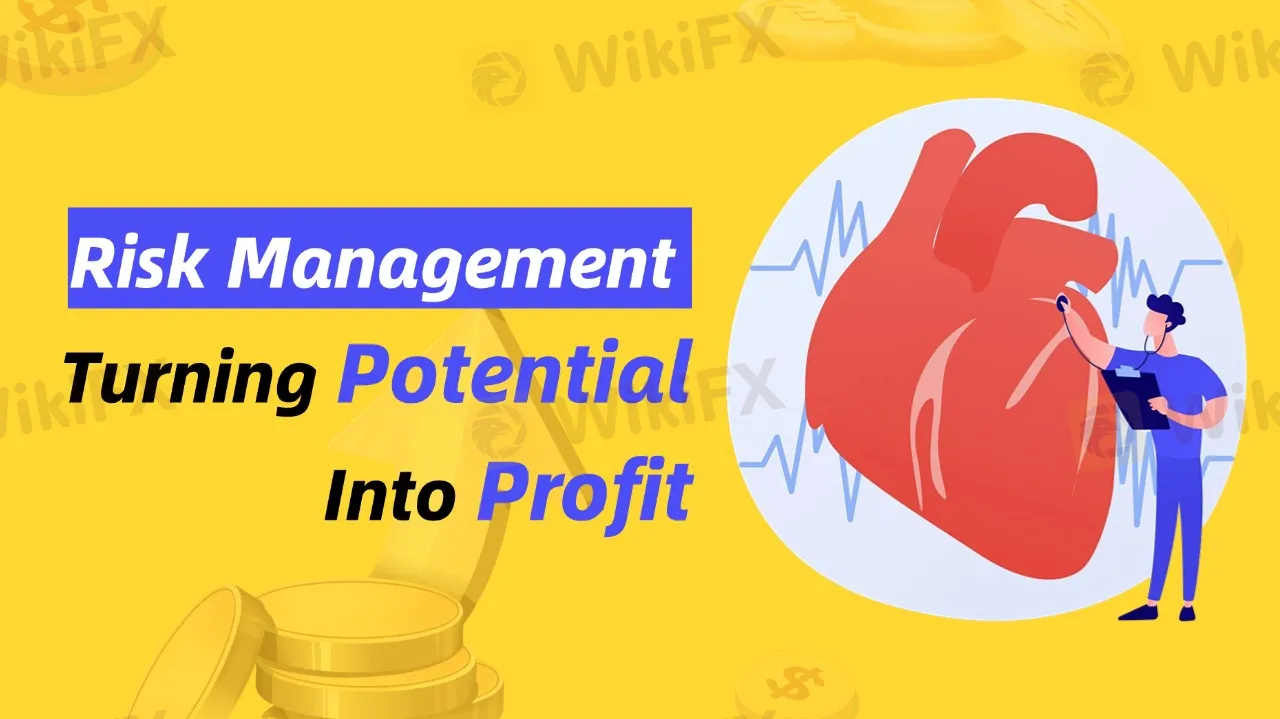简体中文
繁體中文
English
Pусский
日本語
ภาษาไทย
Tiếng Việt
Bahasa Indonesia
Español
हिन्दी
Filippiiniläinen
Français
Deutsch
Português
Türkçe
한국어
العربية
Risk Management: Turning Potential Into Profit
Abstract:In Forex Trading, Without Effective Risk Management, You Risk Huge Losses and the Complete Depletion of Your Account.

The Forex market is highly volatile, with various factors influencing currency fluctuations. Even experienced traders, without effective risk management, will struggle to turn their profits into tangible gains.
One of the most important actions in risk management is setting stop-loss orders. Let's say you're a Forex trader deciding to trade EUR/USD. You analyze and predict the euro might rise, so you decide to go long (buy). Your target price is 1.1000, but you're concerned the market might experience a brief pullback. Therefore, you set a stop-loss at 1.0950, meaning if the market drops to 1.0950, your position will automatically close to prevent further losses.
Suppose the euro does experience a brief dip and hits 1.0950, triggering the stop-loss. Although you lose 50 pips, the stop-loss limits your loss within an acceptable range, preventing the market volatility from turning into a catastrophic loss.
Another key aspect is proper capital allocation, ensuring one failed trade doesn't jeopardize the health of your overall account. Without controlling the loss size on each trade, a single large loss could wipe out your entire account, leading to a “game over” situation.
Equally important is avoiding emotional trading. Stick to your strategy and adjust based on real-time market conditions. If your gut tells you the market will rebound and you ignore your pre-set stop-loss and position size rules, and the market doesn't move as expected but instead continues to fall, you may find your position severely underwater, further amplifying your loss. Had you stayed calm and followed your strategy, your loss would have been contained within a manageable range.
Emotional trading is often the root cause of losses, while strict risk management helps you stick to your plan and maintain stability in your trades.
In conclusion, risk management is essential in Forex trading. It not only helps investors control losses but also provides a stable framework for profitable trading amidst market volatility. With effective risk management, investors can minimize unnecessary risks and ensure sustainable profits in the long run. A good risk management strategy will directly impact whether an investor can survive and succeed in this uncertain market.

Disclaimer:
The views in this article only represent the author's personal views, and do not constitute investment advice on this platform. This platform does not guarantee the accuracy, completeness and timeliness of the information in the article, and will not be liable for any loss caused by the use of or reliance on the information in the article.
Read more

Why Trade Agreements Matter to Nations
In today’s interconnected world, trade agreements serve as the foundation for stable and predictable international commerce.

Trade Fights Are Heating Up—What Happens Next?
Global financial markets have become increasingly reactive to even minor developments in international trade talks.

Juno Markets Upgrades to FYNXT PAMM
Juno Markets has successfully upgraded its managed account infrastructure by integrating FYNXT’s Percent Allocation Management Module (PAMM) system.

Italy’s CONSOB Blocks Sites of ITradingFX and NEX TRADE in Latest Crackdown
Italy’s Companies and Exchange Commission (CONSOB) has ordered Internet service providers to block access to nine unauthorized investment websites, including “ITradingFX” and “NEX TRADE,” as part of its ongoing effort to curb abusive financial services Consob.
WikiFX Broker
Latest News
"Rate & Reward: Broker Review Contest"
FSRA Sanctions Hayvn Group and CEO for Regulatory Breaches and Misleading Conduct
2024 AI Ad-Blocking Performance Revealed
Why Are More Regulated Brokers Providing Free VPS Services?
SkyLine Guide 2025 Thailand Officially Launched: Judging Panel Formation Underway
Five UK Financial Firms Collapse, FSCS Offers Support for Affected Clients
Why Trade Agreements Matter to Nations
Non-Existent Online Scheme Took Away RM580,000
RM15 Million Gone in Fake Investment Scam
CySEC Issues Investor Alert on Unauthorized Financial Websites
Currency Calculator


